Hollywoodisation of video games: Blurring the lines of interactive media
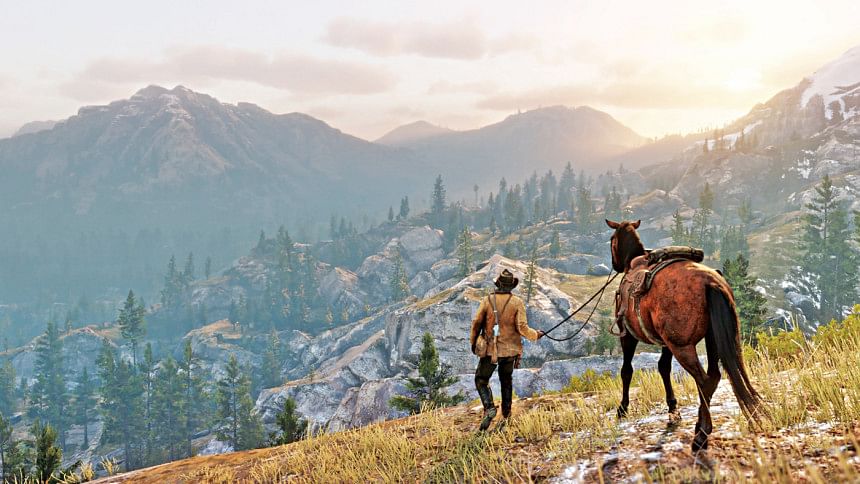
Despite the very first video games stemming from the 1950s, it wasn't until the popularity of arcades and home consoles in the 1980s that video games truly entered worldwide pop culture. Today, video games have transcended their previous hardware limitation of being confined in a box to being completely digital, adding an element of mobile experience that embraces all the amenities of the modern world.
With the ever-increasing demand for high-quality video games from older and newer fans alike, comes the need to present these interactive media as larger than life – breaking boundaries between fiction and reality and providing the audience with cinematic experiences no lesser than big-budget Hollywood films.
For quite a while now, video games have become Hollywoodised – conforming to a standard of quality expected from international blockbusters, while retaining the interactive and engaging element that sets them apart from feature-length motion films. Let's take a look at the myriad of ways video games have evolved into becoming Hollywoodised pieces of media in their own right, thus entering a new realm of entertainment for modern fans to embrace and enjoy.
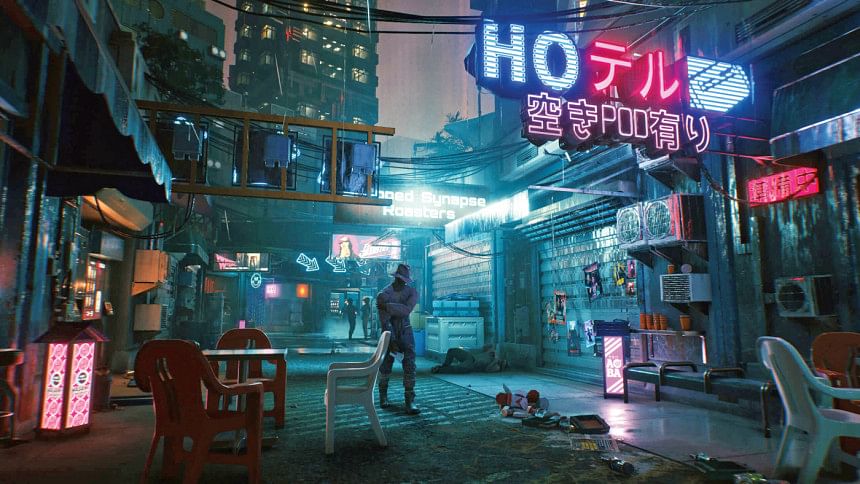
Trailers as narrative tools
Everyone wants a good story, whether you are chatting with friends, watching a new show or catching the latest blockbuster film. Audience engagement of any kind is dependent on providing a narrative from which viewers can derive enjoyment. As has been the norm for decades, film companies churn out trailers to raise interest in their upcoming movie. The same applies to video games.
Modern players have come to expect a certain standard of plot driven by compelling storytelling elements, so the story is often what makes or breaks the success of a new video game. However, before actually releasing the game to the public, developers need potential customers to be hooked on what the game has to offer – giving the need for story-driven, narrative tools we know as modern video game trailers.
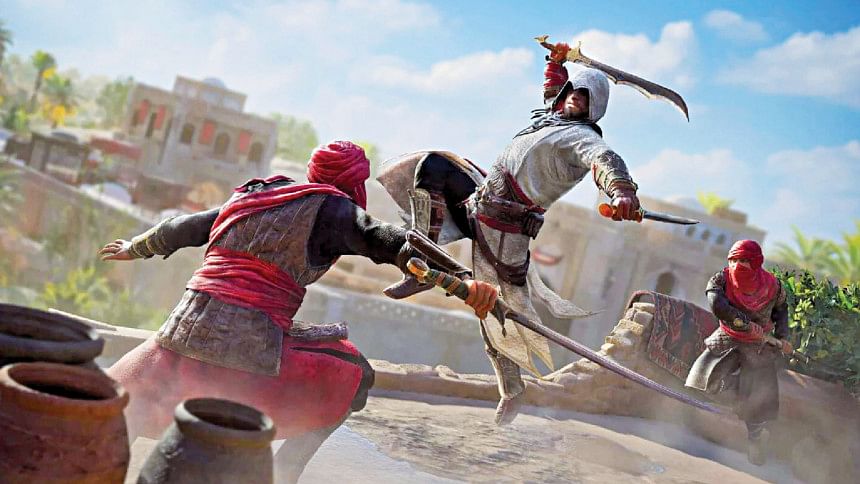
As such, video game trailers these days are no lesser than full-blown cinematic experiences. A recent example is the upcoming "Assassin's Creed Mirage", which was first teased with a cinematic look into 9th-century Baghdad. "Cyberpunk 2077" raised a lot of hype with its narrative-driven E3 2019 trailer, showcasing the personal struggles of the playable character V, in a gripping story set in the futuristic Night City.
The E3 2016 trailer of "Legend of Zelda: Breath of the Wild" is still a memorable experience for Nintendo fans – a trailer filled with mesmerising original scores and clips showcasing the protagonist Link in the franchise's first fully open-world adventure. Narrative-based trailers such as these, which feature the playable character's journey, offer a pre-emptive look into what the players will experience. The engaging narrative also helps make the fictional protagonist feel relatable, making it easier to immerse oneself in the fictional world – a level of immersion motion pictures may struggle to replicate.
Hollywood actors in video games
Just like major Hollywood blockbusters, video games, especially AAA ones, are produced using a big budget. For example, "Cyberpunk 2077" (2020) was one of the most expensive games of all time, costing about USD 315 million in development and marketing combined. "Pirates of the Caribbean: At World's End" (2007), a movie filled with memorable CGI scenes, cost less in production, at about USD 300 million.
While some may argue that unlike Hollywood films, video games don't have to use big-budget stars, a lot of modern games rely on motion capture and voice acting from big Hollywood names to make the fiction come to life. An early prominent example of motion capture can be found in "Beyond: Two Souls" (2013), which stars Elliot Page and Willem Defoe as the two central characters. Renowned Japanese game maker Hideo Kojima's "Death Stranding" (2019) is well known for featuring Norman Reedus as the motion-captured protagonist of the game. This game also has cameos from other big Hollywood names, including Mads Mikkelsen, Edgar Wright and Conan O'Brien.
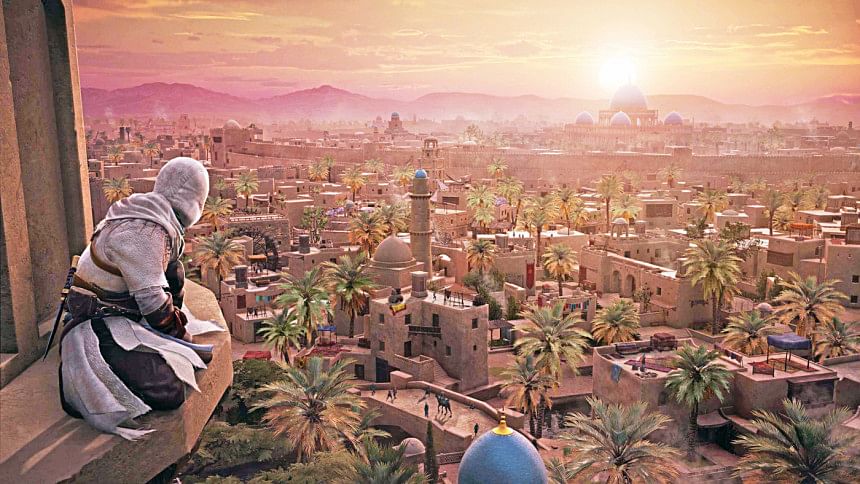
Keanu Reeves made waves by appearing in the E3 2019 trailer of "Cyberpunk 2077" as the anti-hero character, Johnny Silverhand. Despite the initial release of the game known for being full of bugs, Keanu's appearance is still fondly remembered – such was the impact of the prominent Hollywood name. Some other examples of Hollywood stars being motion captured in video games include Rami Malek in "Until Dawn" (2015), Vin Diesel in "Wheelman" (2009), and Andy Serkis – known for motion capturing Gollum, King Kong and The Jungle Book's Baloo - in "Heavenly Sword" (2007).
Of course, aside from motion capturing, Hollywood celebrities had their fair share in video game voice acting as well. Some big names include Mark Hamill in "Batman: Arkham Asylum" (2009), Elijah Wood in "The Legend of Spyro" series, Samuel L. Jackson in "Grand Theft Auto: San Andreas "(2004), and many more.
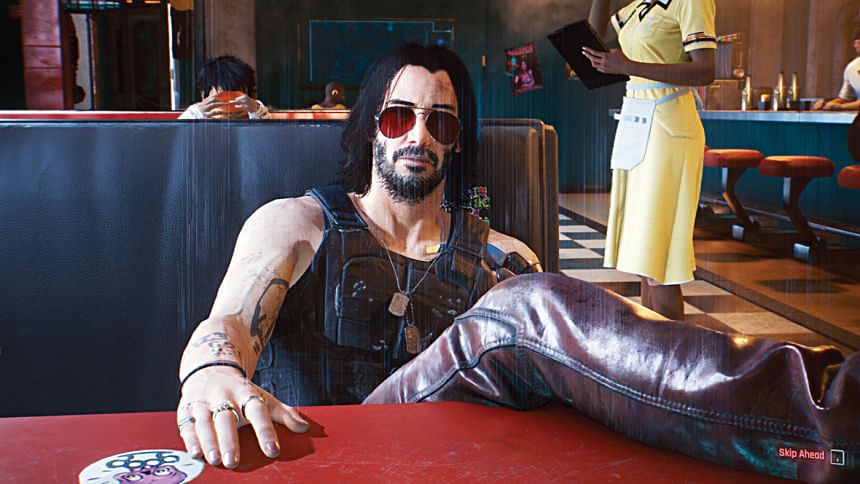
The magnificence of music
Music is a key driving force behind video games. A good soundtrack adds a critical backdrop in adventure games, while action games are dependent on music with a good tempo to get players pumped for combat. Japanese RPGs are famous for compiling enthralling original soundtracks, with franchises such as "Legend of Zelda", "Chrono Trigger", "Final Fantasy", "Octopath Traveler", "Persona" and "Pokémon" having soundtracks that impress old and new fans alike. "Xenoblade Chronicles 3" (2022) made waves last year for having a whopping 140 tracks, a lot of which are original flute melodies that emphasise key plot points in the game.
The inclusion of major stars in both singing and composing music for video games keeps blurring the line between major Hollywood productions and big-budget video games. The late Michael Jackson, being a fan of video games, had several games which were based on him - including Sega's "Michael Jackson's Moonwalker" (1990), where you can play as the King of Pop in a beat-em-up arcade game. He also made music for other Sega games such as "Sonic the Hedgehog 3" (1994).
In modern times, popular singers and musicians have lent their contribution to making exclusive songs for video games as well, with some examples being Paul McCartney in "Destiny" (2019), Imagine Dragons in "League of Legends" (2015), Katy Perry and Ariana Grande in "Final Fantasy Brave Exvius" (2015), and quite recently, Ed Sheeran in the latest "Pokémon Scarlet and Violet" (2022).
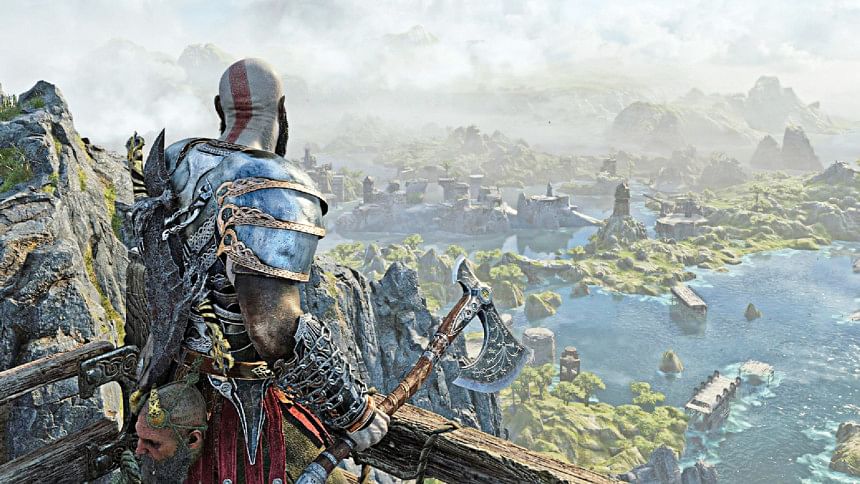
Set pieces – the 'wow' factor
In video games, a set piece is referred to as the one, spectacular moment the developers go all out to provide a 'wow' moment – offering a big, important scene in the most cinematic way possible. This can include the moment the main character meets the big bad guy in the story, when the player is about to come across the major plot twist, or even when the final boss is at its last leg and unleashes the secret weapon.
While big-budget action movies are also dependent on set pieces to make a memorable impact, video games offer a more interactive experience as far as these cinematic scenes are concerned. In a movie, you know you are seeing Hollywood actors in a make-believe predicament – a realisation that in hindsight can take away most of the excitement. However, in a video game, not only are you controlling the character, the perspective offered to you makes it a more personal experience.
As such, set pieces in video games offer a whole other realm of interactive excitement than that of movies. It isn't just Kratos fighting Thor, it is you facing down the God of Thunder as he rains lightning bolts over you. While watching Batman take down Bane in "The Dark Knight Rises" still feels exciting, playing as Batman against a rampaging Bane in Arkham Asylum will add more layers of suspense and involvement than a movie possibly can.
World-class events
Just like there are major feature and award events in the international television industry, video games have their own share of annual events that showcase and award new games. One such example is E3, considered the biggest event in the gaming industry in terms of significance. Past iterations of E3 marked the first official reveal of many big-budget games which ended up being some of the most well-received games of all time. Despite the event being cancelled in 2020 and 2022, and it being hosted online only in 2021, E3 returns in 2023 – where many new games are expected to be announced. E3 2019 saw over 66,000 people in attendance, while 70,000 attended in 2018.
The Game Awards is an annual event that awards newly released, critically acclaimed video games, including naming a new release as the 'Game of the Year' annually. Just like the Oscars and Emmys have their unique categories of awards, The Game Awards has categories such as 'Best Action Game' and 'Best Audio Design'. It also awards e-sports teams and content creators associated with video games.
Following the above examples, video games have well and truly embraced Hollywoodisation, consequently blurring the line between motion films and interactive media. As more big-budget video games grace our consoles and PCs, we can only marvel at the extent game developers are willing to go to deliver the most cinematic, memorable experience possible.

 For all latest news, follow The Daily Star's Google News channel.
For all latest news, follow The Daily Star's Google News channel. 



Comments